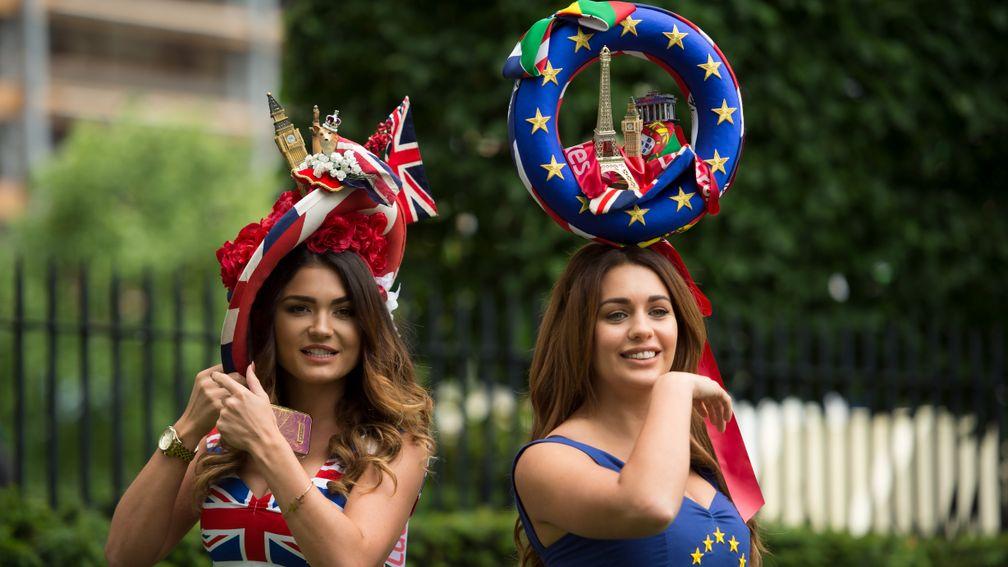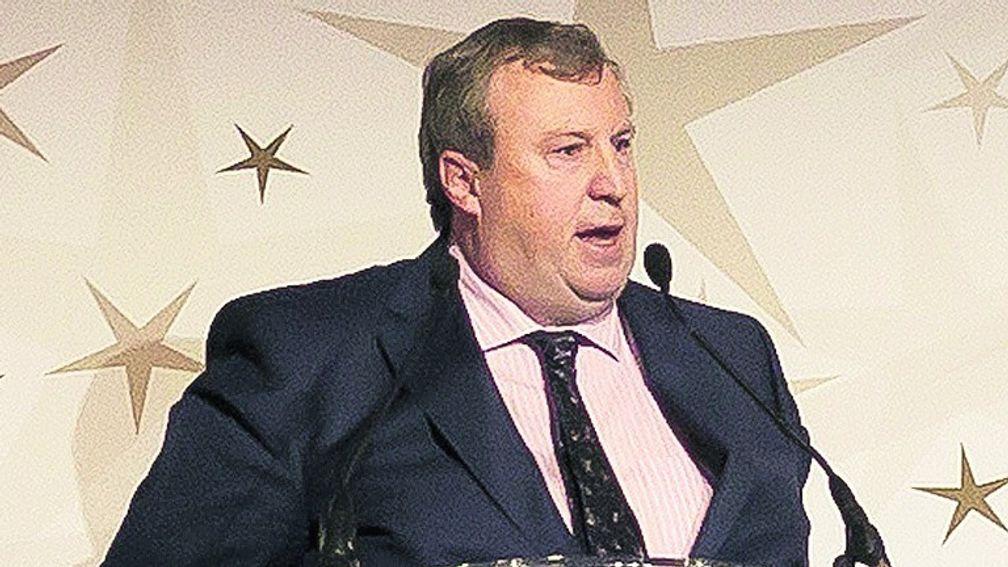Free movement of horses proving 'a very painful subject'
Brexit challenge made starkly apparent to administrators

Brexit and the huge problems it will cause for bloodstock markets in Britain, Ireland, France and beyond when Britain leaves the EU in March 2019 (or whenever) were laid bare in stark detail in Paris on Monday.
Delegates to the annual post-Arc conference of the International Federation of Horseracing Authorities heard public confirmation – for the first time – that the tripartite agreement, which has allowed free movement of horses between the three major powers of Europe since the 1960s, will disappear when Britain becomes a "third country" in EU terms.
The news that the thoroughbred industries of all three countries least wanted to hear was delivered last week, when BHA chief executive Nick Rust, his Horse Racing Ireland counterpart Brian Kavanagh and Paul-Marie Gadot, France-Galop's chief veterinary officer and co-chairman of the European & Mediterranean Stud Book Liaison Committee, met the EU negotiator in Brussels.
Tripartite agreement doomed
Describing Brexit as "a very painful subject," Gadot told the Paris delegates: "The EU negotiator's position is simple and it has not changed: on March 29, 2019, the UK will be a third country and the tripartite agreement will no longer exist.
"It will be impossible to say the agreement was signed before Britain and Ireland joined the EU in 1973, was executed before Brexit and therefore will exist afterwards, because it has become part of EC legislation, after being accepted by the EU in accordance with an EC directive in 2009.
"The future status of the UK can't be the same as it was before Brexit. Moreover, we were told that we won't obtain the same status for Britain as Switzerland currently has. Switzerland is not in the EU but has special statutes and we can easily move horses from there to France and Germany. That will not be the solution after Brexit."
Penalised
As a consequence, Gadot said, the industry position was paramount. "We need to protect our economic and technical interests," he added. "The restrictions imposed on the UK will penalise Irish and French interests, but also the other European nations which maintain trading activities with the UK.

New system
"It's clear that we can't call it a TPA," he said. "But we will invent a new system that allows easy movement between the three countries. For border inspection posts, they have to allow a fluent custom passage, otherwise trade and welfare would be affected.
"If on March 29, 2019, we have thousands of horses moving between countries, there will be hundreds of lorries at border posts, so it not only our problem but the EU's problem, because they will have to give a lot of money for something that today is not considered necessary."
Gadot pointed out that Britain, Ireland and France were already working closely on a common position, and that other European countries had approached their EU commissioners highlighting serious concerns.
Confirming the joint approach, Brian Kavanagh said: "If there is any silver lining to the cloud, this is it. The process has challenged us to look at the fundamentals, and I see nothing but co-operation between Britain, Ireland and France, which has sent out a very powerful message to the EC."
Published on 10 October 2017inInternational
Last updated 14:03, 10 October 2017
- Two-year-old colt Mensa breaks Fasig-Tipton Digital record at $740,000
- 'A rare and valuable gem' - world’s highest-rated mare Imperatriz tipped to threaten longstanding sale record
- Landmark first Classic success for Havana Grey as Beenham wins the Italian 1,000 Guineas
- First European Classic win for Kessaar as Melfi wins the Italian 2,000 Guineas
- Haya Zark springs a surprise at Longchamp to give Zarak a second Group 1 winner
- Two-year-old colt Mensa breaks Fasig-Tipton Digital record at $740,000
- 'A rare and valuable gem' - world’s highest-rated mare Imperatriz tipped to threaten longstanding sale record
- Landmark first Classic success for Havana Grey as Beenham wins the Italian 1,000 Guineas
- First European Classic win for Kessaar as Melfi wins the Italian 2,000 Guineas
- Haya Zark springs a surprise at Longchamp to give Zarak a second Group 1 winner